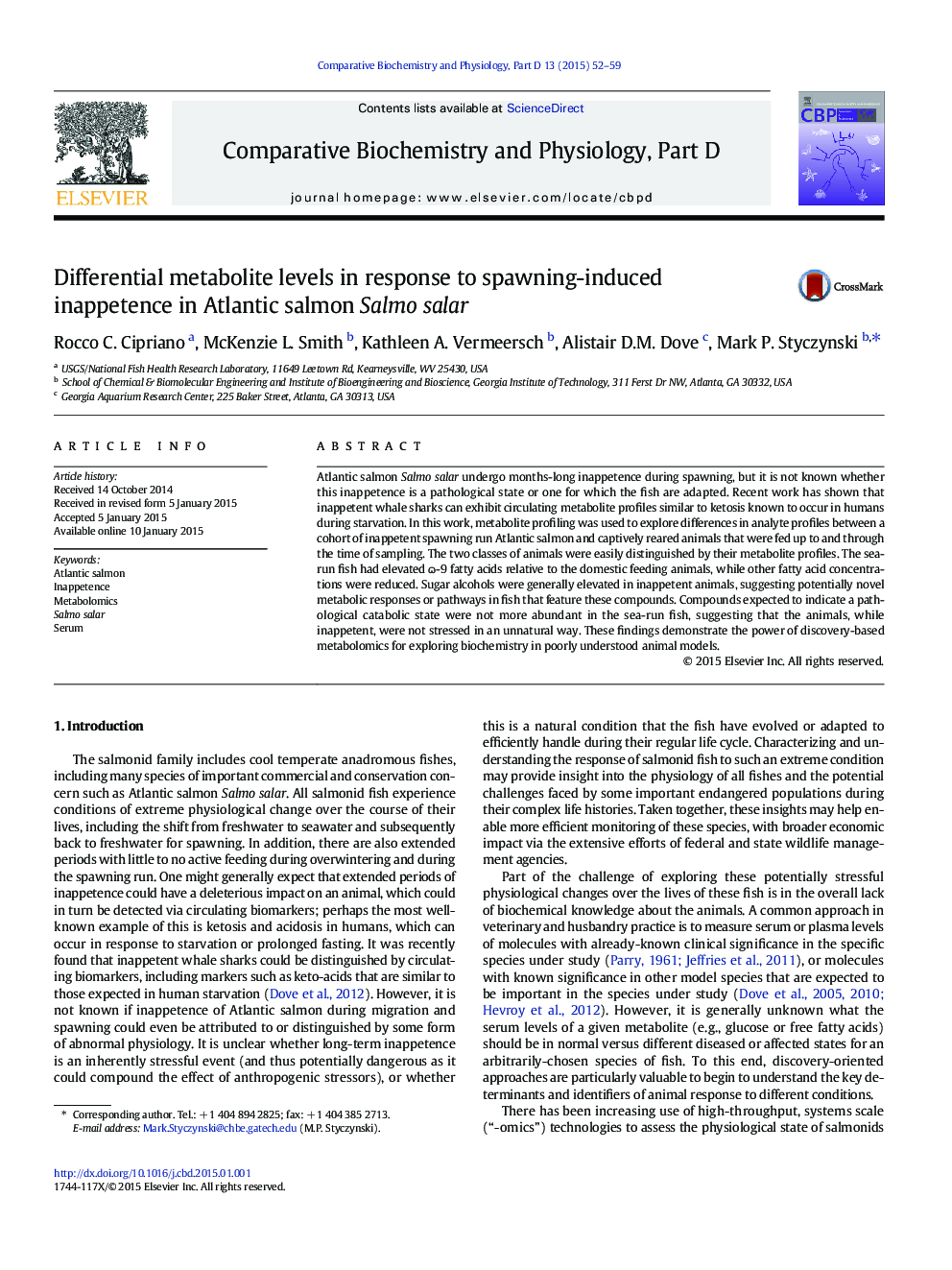| کد مقاله | کد نشریه | سال انتشار | مقاله انگلیسی | نسخه تمام متن |
|---|---|---|---|---|
| 1978579 | 1539322 | 2015 | 8 صفحه PDF | دانلود رایگان |
Atlantic salmon Salmo salar undergo months-long inappetence during spawning, but it is not known whether this inappetence is a pathological state or one for which the fish are adapted. Recent work has shown that inappetent whale sharks can exhibit circulating metabolite profiles similar to ketosis known to occur in humans during starvation. In this work, metabolite profiling was used to explore differences in analyte profiles between a cohort of inappetent spawning run Atlantic salmon and captively reared animals that were fed up to and through the time of sampling. The two classes of animals were easily distinguished by their metabolite profiles. The sea-run fish had elevated ɷ-9 fatty acids relative to the domestic feeding animals, while other fatty acid concentrations were reduced. Sugar alcohols were generally elevated in inappetent animals, suggesting potentially novel metabolic responses or pathways in fish that feature these compounds. Compounds expected to indicate a pathological catabolic state were not more abundant in the sea-run fish, suggesting that the animals, while inappetent, were not stressed in an unnatural way. These findings demonstrate the power of discovery-based metabolomics for exploring biochemistry in poorly understood animal models.
Journal: Comparative Biochemistry and Physiology Part D: Genomics and Proteomics - Volume 13, March 2015, Pages 52–59
